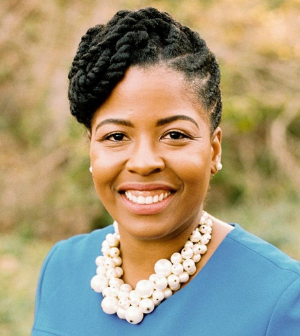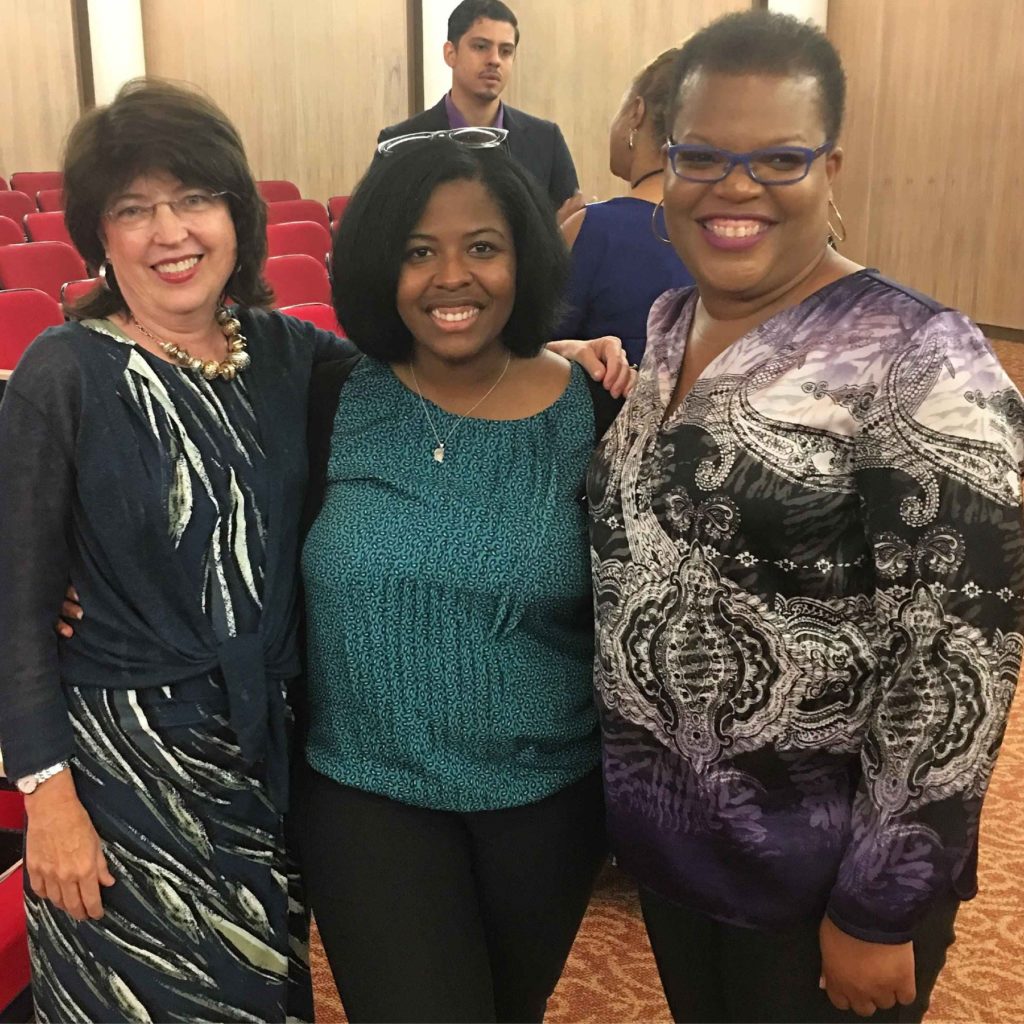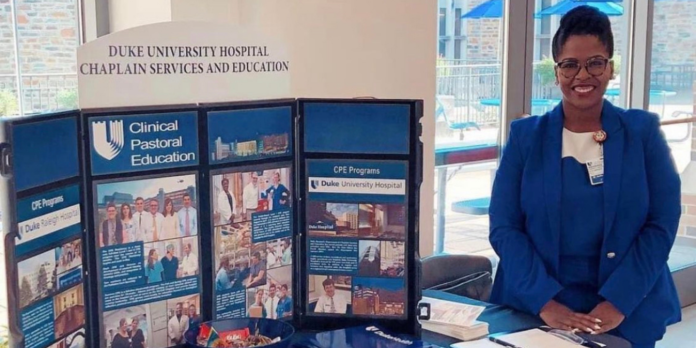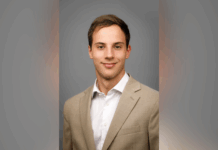When people are in crisis, Mercer University alumna Rev. Amanda A. N. Alexander is there to provide a listening ear and compassionate presence.
“I love being able to cultivate meaningful and sacred spaces for people to share their story and in ways that are deeply connected to who they are and the communities they come from,” said Alexander, who earned her Master of Divinity from the McAfee School of Theology in 2014.
An experienced hospital chaplain, Alexander often sees people going through traumatic situations. Too often, people are identified by their circumstance — they’re identified as a drug addict or a cancer patient, for example — but it’s important to recognize the humanity of the person while not negating the crisis they’re in, she said.

“One of the beautiful things about my job that I love is that I get to say, ‘Yes, you are an individual who has cancer, but also there are many other layers to who you are as a person, and I am able to hold space for you to talk about who you are in partnership with this really, really hard thing,’” she said.
Now, Alexander — the clinical pastoral education program manager and ACPE certified educator at Vidant Medical Center in Greenville, North Carolina — is training a new generation of chaplains and caregivers to provide that kind of spiritual support and care. ACPE is the Association for Clinical Pastoral Education and is the standard for spiritual care and education.
In this role, she is responsible for managing all aspects of the clinical pastoral education program and education of the chaplain residents and interns at Vidant who are training in the field of spiritual care.
“Chaplain residents and interns are entrusted with the unique opportunity to develop practical and interpersonal skills for spiritual care and education,” she said. “Clinical pastoral education is an interfaith professional education for ministry. It has been instrumental in training clergy, laypersons and chaplains to serve in various caregiving and educational roles.”
Alexander started work at Vidant Medical Center in January, after completing the ACPE certified educator candidate program at Duke University Hospital in December. She also has served as a chaplain resident at Emory University Hospital Midtown and Children’s Healthcare of Atlanta – Egleston Hospital, as well as PRN chaplain at Emory. PRN chaplains serve as needed.
She discovered her love for spiritual care and chaplaincy while she was at the School of Theology, where she was required to complete a unit of clinical pastoral education as a pastoral care and counseling student. To fulfill her degree requirement, she served as a chaplain intern at VITAS Innovative Hospice Care under the supervision of the Care and Counseling Center of Georgia.

While she was discovering her love for the chaplaincy, she also was enjoying her work as a training coordinator at Chick-fil-A. She continued in that position for a year after she graduated from McAfee before deciding to make a change.
“While I enjoyed supporting people and the development of teams as a training coordinator, something was missing,” she said. “And so that’s what led me to transition back to chaplaincy actually, discovering that I enjoy listening to stories, cultivating meaningful spaces for people to show up in their authentic self and show the depth of their heart.
“Being a chaplain allows me to live out my calling to hear, to see and to respect the way people choose to reflect and make meaning of their life experiences.”
Alexander said she credits her development as a pastoral care provider to the training she received at the School of Theology. She recalled the support of many faculty members, including former associate professor Dr. Chanequa Walker-Barnes, who as a Black woman with similar values and experiences became a role model and mentor for Alexander.
The faculty was a “strong team of theologians who were interested in developing critical, reflective minds,” Alexander said.
“I’m grateful that McAfee offered the space for me to wrestle with hard questions and begin to develop my own voice and lens for pastoral ministry,” she said. “These skills of critical reflection and wrestling set a foundation that supports my work as a chaplain and educator, where I am doing this daily with students and patients.
“I wrestle with questions; I’m engaging in theological reflection; and I’m asking what does this mean for me but at the same time holding space for others to wrestle with their own questions, beliefs and values.”










